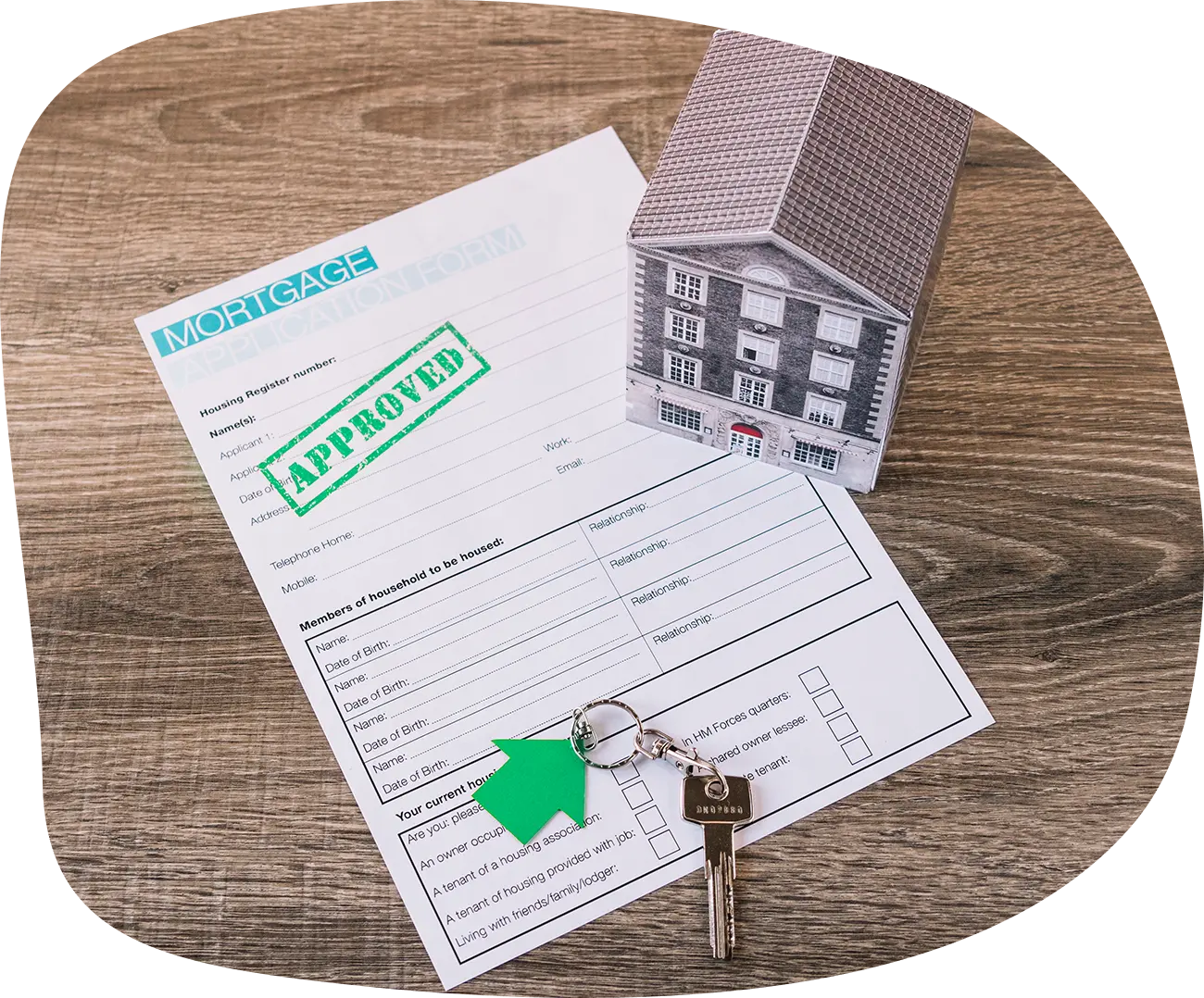Buy-to-Let Mortgage Rates & Limits
BTL lending is pretty flexible, meaning you can borrow as much as you require to purchase or refinance a buy-to-let property. You'll need to show that the rental income will comfortably cover the interest, but there is no general limit on the amount you can apply to borrow.
Our team at Revolution Broker is here to review your circumstances and eligibility and match you with the best BTL offer. We'll only require your rental income to be at least 125% to 140% of the buy-to-let mortgage interest-only monthly payments as a minimum, giving the lender assurance that there is little likelihood of being unable to keep up with the mortgage payment schedule. Are you interested in applying?
APPLY NOW
Why Buy-to-Let Mortgage Deals Are In High Demand
Any buy-to-let mortgage agreement has potential positives and negatives to bear in mind, particularly if you are comparing alternative forms of financing or deciding whether to invest in a rental property. As a summary of the incentives to consider buy-to-let property investment:
- Good-quality rental properties can command excellent returns far in excess of your buy-to-let mortgage payments. The right rental property can generate a monthly profit, easily cover the mortgage costs, and appreciate in value, making it worth more on the open market should you decide to sell in the future, especially when house prices fall.
- Demand for premium rental properties and other subsections, such as student lets, is consistently high, making a buy-to-let property a suitable asset for a property or investment portfolio with low-risk exposure.
- Buy-to-let mortgage businesses benefit from tax treatments, which allow landlords to deduct most of their running expenses from their rental income before declaring the taxable profit.
Alongside these plus points, there are also some pitfalls we'd ensure every buy-to-let mortgage applicant is aware of. These include the risks of tenants being late with rental mortgage payments or falling into arrears. Vacant periods can also be a financial challenge, as the mortgage remains payable regardless of whether you have a tenant.
Stamp duty is an additional cost to factor into your budget for a buy-to-let mortgage, with an additional 3% levy against second homes that applies to rental property investments. Landlords investing for long-term capital growth should also consider the potential for the property to drop in value—however unlikely that may be.
Working with an experienced broker with the skill necessary to negotiate buy-to-let mortgage deals is essential, with additional guidance available around insurance policies to protect your interests as a landlord.
Financing a Buy-to-Let HMOs (House in Multiple Occupations)
Investing in HMO properties can deliver significantly higher rental yields compared to standard buy-to-let properties. HMOs typically house multiple tenants with shared facilities, making them a lucrative choice for experienced landlords.
These investments come with stricter regulatory standards and often require a mandatory HMO license. Understanding local licensing rules, compliance requirements, and higher interest rates is crucial for securing competitive buy-to-let mortgage deals for HMOs.
Eligibility Criteria
Every buy-to-let mortgage lender has a set of policies and eligibility criteria that influence the applicants they are prepared to lend to. There are also niche buy-to-let mortgage lenders who specialise in landlords who fall outside of the standard criteria.
The below inclusions are based on standard criteria, but it is important to note that no two buy-to-let mortgage lenders are the same, and their specific rules may vary.
Minimum Deposits
Most lenders expect any buy-to-let mortgage applicant to have a deposit—or equity in the property for a remortgage—of at least 25%, although some will offer financing of up to 80% as a maximum. Buy-to-let mortgage deals need a higher deposit than a residential mortgage.
Prospective landlords with a lower budget are advised to consult with the Revolution team to explore whether they may qualify for specialist lending, with some restricted access lenders able to consider deposits from 15% and upward, depending on the circumstances.
Rental Income Proof
The next area to consider is the anticipated rental income you will generate through your buy-to-let property. Lenders will also need to know if you have a separate revenue stream, with some imposing a minimum annual earnings limit of £25,000 outside of rental property earnings.
Some lenders will only expect some buy-to-let mortgage applicants to have a separate income, and we can advise on those mortgage providers who may be able to help if this applies to you.
General Lending Criteria
Alongside the above policies, some lenders will also evaluate buy-to-let mortgage applicants against:
- Age: Lenders can limit applicant ages, often lending to any buy-to-let mortgage applicant from 21 to 75. In contrast, others will lend to anybody who can demonstrate sufficient income and has a stable credit history.
- Property type: Rental properties considered non-standard, such as semi-commercial buildings and high-rise flats, are more complex to finance and are often best suited to a niche buy-to-let mortgage lender.
- Previous landlord expertise: Some buy-to-let mortgage providers expect all applicants to have a minimum of years of experience as a professional landlord. Other lenders have no such policy, so your choice of lender is vital.
A buy-to-let mortgage provider might expect applicants to have an existing residential mortgage if they do not already own their primary home outright. If you have a mortgage that has been ongoing for at least six months, you should be able to comply with this requirement.
Understanding Buy-to-Let Mortgage Rates and Costs
The buy-to-let mortgage market is not regulated like residential mortgages, which means there are often greater variances between the highest and lowest buy-to-let mortgage rates and other costs, such as product and application fees.
It is impossible to publish average buy-to-let mortgage interest rates since these vary considerably depending on the amount you wish to borrow, the value of the property, the forecast rental income, your age and credit score, and varied other criteria, many of which we have explored above.
Next, we summarise some potential buy-to-let mortgage interest-only costs to indicate which expenses to look out for and how to get an accurate overall picture of what comparable buy-to-let mortgage deals may cost.
Application Costs, Fees & Valuation Charges
Buy-to-let mortgage deals can carry an upfront cost called an application fee. This expense can be roughly £500, depending on the lender, although it isn't universal, and some products may be fee-free. It is well worth consulting an independent buy-to-let mortgage adviser to ensure you oversee all the additional costs and work these into your comparisons.
Sometimes, a lender won't need a fresh valuation, although this is a standard requirement. The valuation shows what the property is worth as a bricks-and-mortar asset on the open market. However, the lender must evaluate its worth as security against the buy-to-let mortgage. You may find that some buy-to-let mortgage deals include the valuation fee. However, these are worth evaluating carefully since 'no fees' buy-to-let mortgage deals are often more expensive elsewhere.
In addition to application fees, some buy-to-let mortgage deals have a 'product fee' attached. This charge may be based on a percentage of the borrowing or a fixed payment. The latter may be preferable, depending on the amount you'd like to borrow through a buy-to-let mortgage.
Exit Fees For BTL Mortgages
Just as exit fees can make it very expensive to remortgage a residential loan before a fixed term ends, this can impact the viability of a buy-to-let mortgage. The early settlement charge can be significant if you decide the option of mortgage repayments or refinancing the loan early.
An early repayment mortgage charge differs slightly from an exit fee. Still, either should be fully disclosed in the buy-to-let mortgage offer to ensure you fully understand the potential costs should your circumstances change or more competitive buy-to-let mortgage deals come onto the market.
Legal Costs
Most mortgages require a legal professional – solicitor or conveyancer – to deal with the particulars. Solicitors might charge a fixed, not a variable rate mortgage or bill based on the hours or days they spend managing your mortgage process. As with valuation fees, caution is advisable if you consider buy-to-let mortgage deals with free legal included, as this may not be in your best interests.
Get Expert Help with Your Buy-to-Let Mortgage from Revolution Brokers
Finding the right buy-to-let mortgage doesn't have to be complicated. Revolution Brokers is here to guide you through every step, helping you secure the most competitive BTL mortgage deals available. Contact us today at 0330 304 3040 or request a callback to get started. You can also explore our resources on the buy-to-let sitemap for more in-depth guidance on your specific needs.
GET STARTED













